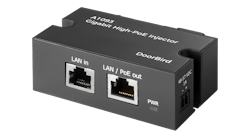An ordinance recently passed by city officials in Toledo, Ohio requires convenience store and small restaurant owners to install closed circuit television systems in their businesses.
According to the ordinance, the camera systems are required to:
• Cover the cash register or area where monies are exchanged
• Be maintained to ensure it is working properly and have a light or other signal that indicates the system has been activated
• Produce a "recognizable, color, retrievable, enlargeable, and reproducible photographic images of persons" and that they be of sufficient clarity for identification purposes; remain fixed and not pan in the designated area
• And, the recorded images must be able to be retrieved by the police department's crime lab.
Tapes of recorded images must be maintained for 30 days and business owners are required to be responsible for ensuring the accuracy of the time keeping in conjunction with what has been recorded.
The businesses must also post signage stating that the location is under video surveillance.
"I think it's a flawed system, and I believe it will probably end up with people buying equipment either online or locally and putting it in themselves," said Kim Klewer, owner and president of the Toledo security firm Asset Protection Corporation. "I don't think this is going to be a major boost to any of the area alarm companies."
Because of the ordinance's language, Klewer said he believes that business owners could be left with big security deficiencies.
"If you install it per the ordinance, you still have some gaping holes from a security standpoint," Klewer said. "Generally, you have a camera at the point of transaction ... and at minimum you have a camera set up at a distance that videos a person either coming in or going out of the location and occasionally we put cameras outside."
Klewer added that the ordinance fails to take into account the security of the recording device itself.
"At all times we secure the DVR so that the clerk or the assailant does not have access to it," said Klewer. "There's no language [in the ordinance] that indicates that the recorder itself has to be protected in some kind of a vandal-proof enclosure. So, basically somebody comes in, holds you up and then steals the recorder with everything else, and there goes the evidence."
Klewer said he is also concerned that the ordinance requires a light or some other signal to show that the video system is operating. He compared a "CCTV is on" type of light like the ordinance requires as somewhat equivalent to a hold-up alarm that is not silent. He says the indicator could lead to violence against the store or restaurant workers.
"From a security standpoint we generally feel all hold up alarms should be silent. Obviously, when you have somebody -- perhaps with a weapon -- on the other side of the counter and you cause an alarm to activate you have just made that person very angry and many times they'll take an action they normally wouldn't take," Klewer said. "It's just not a prudent security tactic that you do anything that would let that person know you've generated an alarm activation."
Under the ordinance stores will be subject to periodic inspection of their video surveillance systems by police and the city's business license division. Those found to be in violation are subject to fines of $100 for each day of non-compliance with the ordinance and could even lose their business license.


